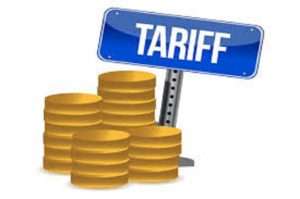Challenging Trump’s Tariffs Under the Major Question Doctrine

Back in February, I explained why Trump’s planned use of the International Emergency Economic Powers Act of 1977 (IEEPA) to wage a massive trade war against Canada and Mexico is vulnerable to challenge under the nondelegation and major questions doctrines. Georgetown law Prof. Jennifer Hillman has an excellent Lawfare article laying out the major questions argument against Trump’s IEEPA tariffs in greater depth and detail:
The U.S. Supreme Court’s articulation of the major questions doctrine may have created insurmountable hurdles to the president’s desire to use IEEPA as the legal basis for sweeping tariffs. Congress frequently delegates authority to the executive branch to regulate particular aspects of society, but in a number of recent decisions, the Supreme Court has declared that for an agency to decide an issue of major national significance, its action must be supported by clear congressional authorization….
The major questions doctrine entails that the Court “expect[s] Congress to speak clearly if it wishes to assign to an agency decisions of vast ‘economic and political significance’,” looking at the “the history and the breadth of the authority that [the Executive Branch agency] has asserted.” In Utility Air Regulatory Group v. EPA, the Court expressed skepticism when agencies claim to have discovered in a long-extant statute “an unheralded power to regulate ‘a significant portion of the American economy’….”
There can be no doubt that using IEEPA to impose broad tariffs is a major question. It falls squarely within the Supreme Court’s notion of a “novel” use of an “unheralded” power given that no other president has used IEEPA in its nearly 50-year history to impose tariffs. The decision to impose the new tariffs on the United States’s three largest trading partners constitutes a “transformative power expansion” and carries “vast economic and political significance” as it has significant breadth, national impact, and an effect on large segments of the economy. In 2024, imports from Canada, China, and Mexico exceeded $1.3 trillion. U.S. exports to Canada and Mexico totaled $680 billion, and trade among the three USMCA parties supports over 17 million jobs. Chinese imports of goods in 2024 were $439 billion, and additional tariffs on China will impact smartphones, computers, furniture, shoes, toys, food, and more. The Peterson Institute for International Economics estimates that these tariffs collectively are the “largest tax increase in at least a generation” and will cost the typical U.S. household more than $1,200 a year. Moreover, much of the burden of paying the tariffs will fall on lower- and middle-income households. Trade historian Douglas Irwin has noted that these IEEPA tariffs “would constitute a historic event in the annals of U.S. trade policy.”
Applying the major questions doctrine to IEEPA also shows that Congress did not “clearly authorize” the president to impose broad-based tariffs. IEEPA sets forth a wide array of actions that the president can take following the formal declaration of a national emergency, including the power to “regulate … importation or exportation” of any property in which a foreign government or foreign national has any interest. While the power to regulate importation can be read to include the imposition of tariffs, an argument can be made that this does not constitute a sufficiently explicit congressional authorization. If Congress clearly intended to delegate its tariff power, it would have used tariff terms (“tariffs,” “duties,” or “taxes”) and called for a tariff-related process to establish the factual predicate for and the appropriate level of such duties. This is not the case with IEEPA.
As Hillman notes, Trump’s abuse of the IEEPA is not limited to imposing tariffs against Canada, China, and Mexico. He also intends to use it to impose a variety of other massive tariffs, as well. Hillman makes several other good points, as well. Anyone interested in this extremely important issue should read the whole thing.
The post Challenging Trump’s Tariffs Under the Major Question Doctrine appeared first on Reason.com.
